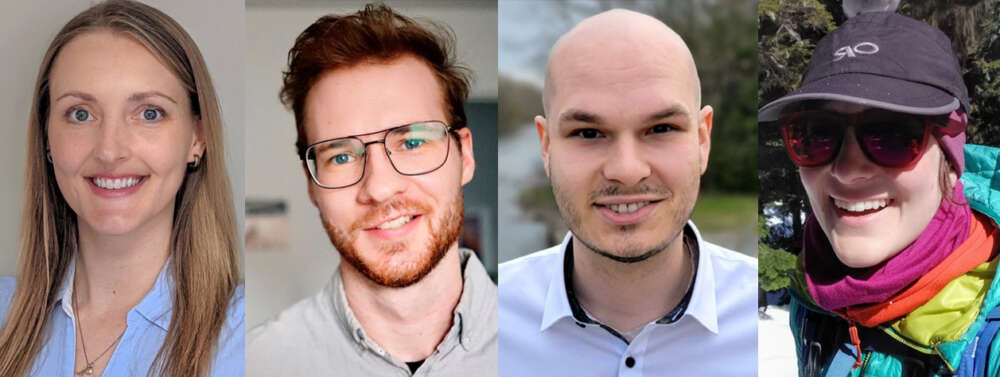
Three University of Guelph PhD candidates and one post-doctoral researcher will receive the Government of Canada’s most prestigious scholarships, worth $50,000 to $70,000 a year.
Tyler Black, Jude Frie and Eleonore Lebeuf-Taylor will receive Vanier Canada Graduate Scholarships. The awards recognize top Canadian and international doctoral students for academic excellence and research potential. The awards are named for former Governor General Georges Vanier and provide $50,000 per year for up to three years.
Kira Borden has received a prestigious Banting Postdoctoral Fellowship. Worth $70,000 a year. The two-year award is named for Frederick Banting, the Canadian medical scientist and Nobel laureate who helped discover insulin.
The awards are funded by three federal granting agencies: the Natural Sciences and Engineering Research Council; the Canadian Institutes of Health Research; and the Social Sciences and Humanities Research Council.
“It is tremendously exciting and heartening to see our brilliant young scholars recognized with the most respected and sought-after scholarships our nation has to offer,” said Dr. Malcolm Campbell, U of G vice-president, research.
“These exceptional graduate students represent the bright future of research at our university and in our nation, research sharply focused on issues of vital importance to the health and well-being of our world.,” Campbell added. “We are inspired by and deeply proud of these remarkable individuals.”
Tyler Black
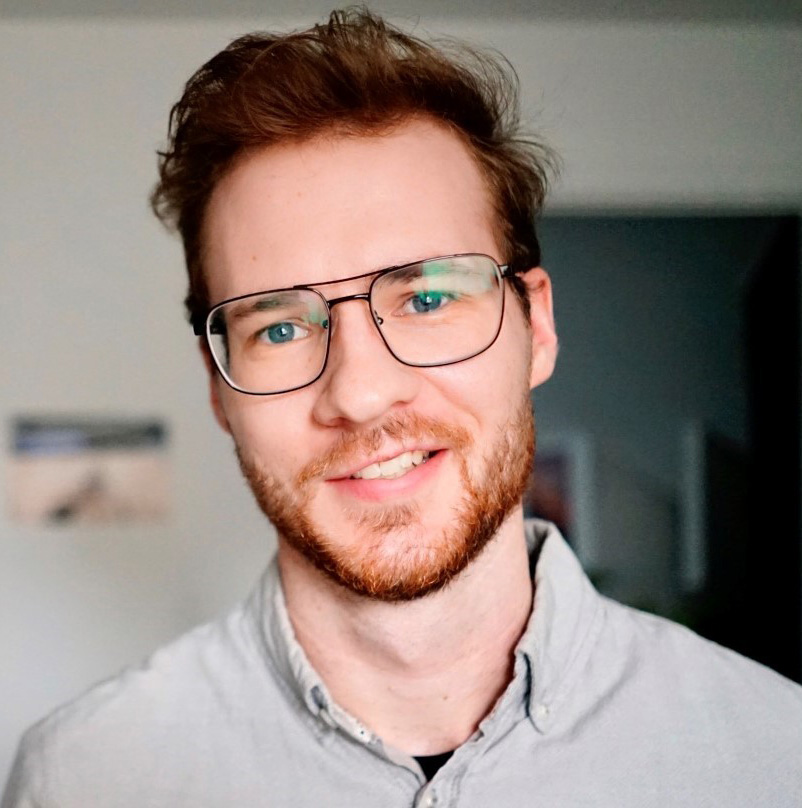
Tyler Black started his doctoral studies at U of G in 2020, looking at impacts of oil spills on clams. He’s working with environmental sciences professor Dr. Ryan Prosser, who was contacted by the Haíɫzaqv First Nation after a barge ran aground on the British Columbia coast in 2016 and spilled more than 100,000 litres of diesel fuel, oil and other contaminants.
“The clam beds have cultural and economic value for the Haíɫzaqv First Nation,” said Black, who studied ecotoxicology at U of G before completing his master’s degree at the University of Manitoba. “We want to investigate why, five years later, the clam populations have yet to recover.”
His co-adviser is Dr. Kyle Artelle, science director of the Marine Food Systems Restoration Program with the Heiltsuk Integrated Resource Management Department in Bella Bella, B.C. The researchers are collaborating on the project with the Haíɫzaqv First Nation.
As potential oil spills from increasing marine traffic on Canada’s west coast may affect other communities and the aquaculture industry, Black hopes his research will help shape energy and sustainability policy.
“The Vanier award recognizes the necessity of doing this kind of research,” Black said. “For me personally, it removes a huge financial burden and allows me to focus on the important work at hand.”
Eleonore Lebeuf-Taylor
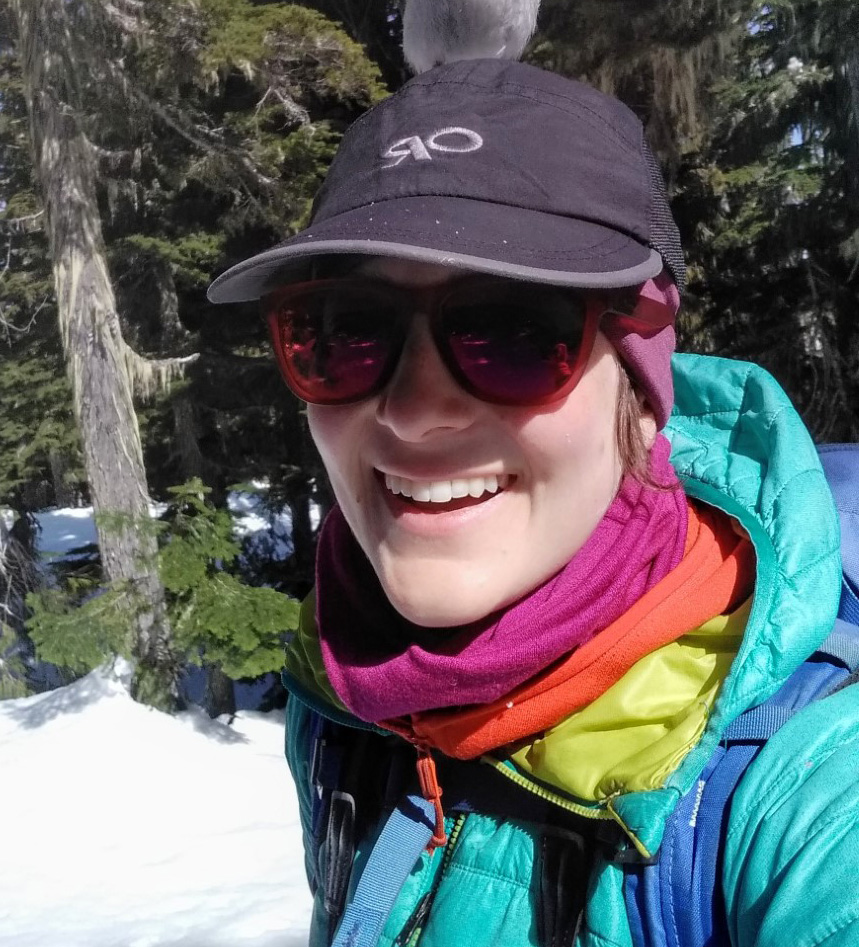
Investigating links between gut microbes and social relationships in birds is the focus of PhD research by Eleonore Lebeuf-Taylor.
She will use her Vanier award to study Siberian jays in Sweden and Canada jays on Vancouver Island. By looking at birds in social groups, Lebeuf-Taylor hopes to learn about links along the brain-gut axis connecting social behaviour and the birds’ intestinal microbiome.
Scientists have linked the human gut microflora to Autism Spectrum Disorder. “I can compare birds that get along with those that don’t and see whether there is any link to the bacteria in their intestines,” said Lebeuf-Taylor, who completed her master’s studies at the University of Ottawa.
At U of G, she will work with Dr. Karl Cottenie, a professor in the Department of Integrative Biology; she also has a co-adviser at the University of Konstanz in Germany.
“The Vanier award allows me to have utter freedom in pursuing this PhD,” she said. “It will allow me to build connections, travel, do field work and entirely focus for three years on this research. It’s life-changing.”
Jude Frie
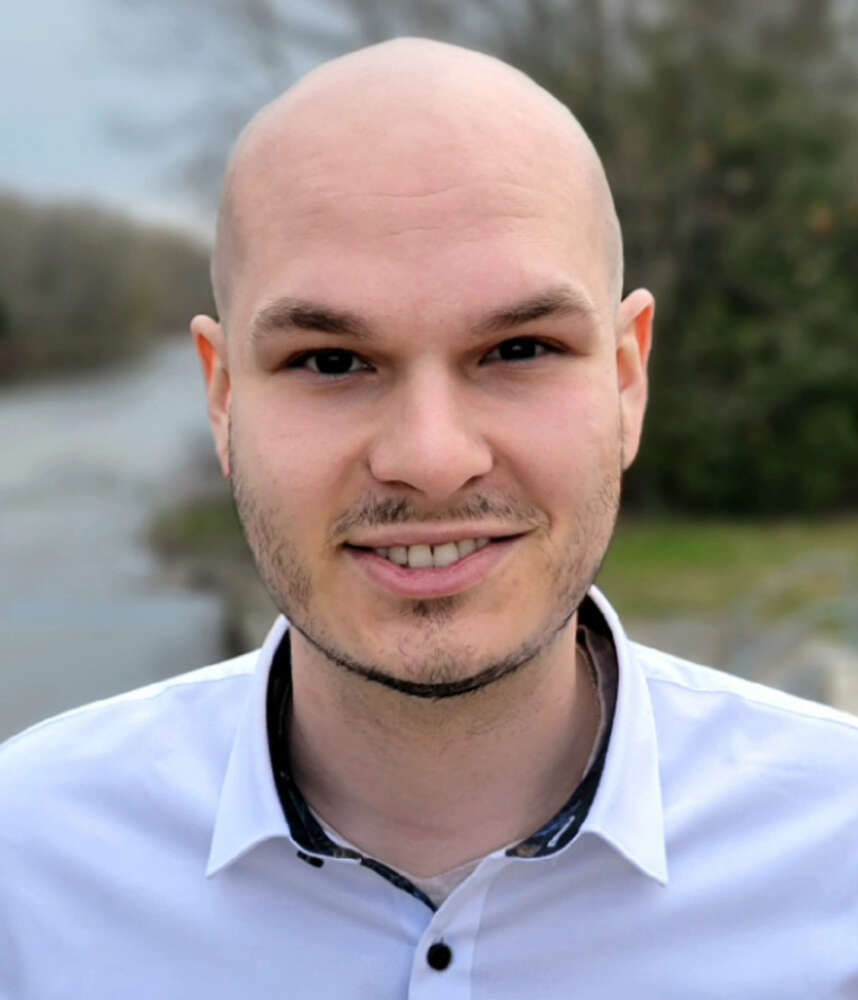
PhD student Jude Frie studies vulnerability to substance use among adolescents and long-term vaping effects on the brain along with Dr. Jibran Khokhar, professor in the Department of Biomedical Sciences.
By looking at physical changes in the brain from nicotine use, he hopes to provide information to help guide health policy to protect young people.
“The more you learn about the brain, the harder it is to blame people for problems. You understand there are physical mechanisms in the brain making people more vulnerable,” said Frie, whose interest in the brain was sparked after his father suffered a stroke when he was young.
Frie studied electrical engineering at the University of British Columbia and then completed a second undergrad in biological sciences at U of G.
He said the Vanier award provides financial stability, enables him to focus on his research and offers validation for his project. “It gives you motivation to keep going, to dig in and put your best into it.”
Dr. Kira Borden
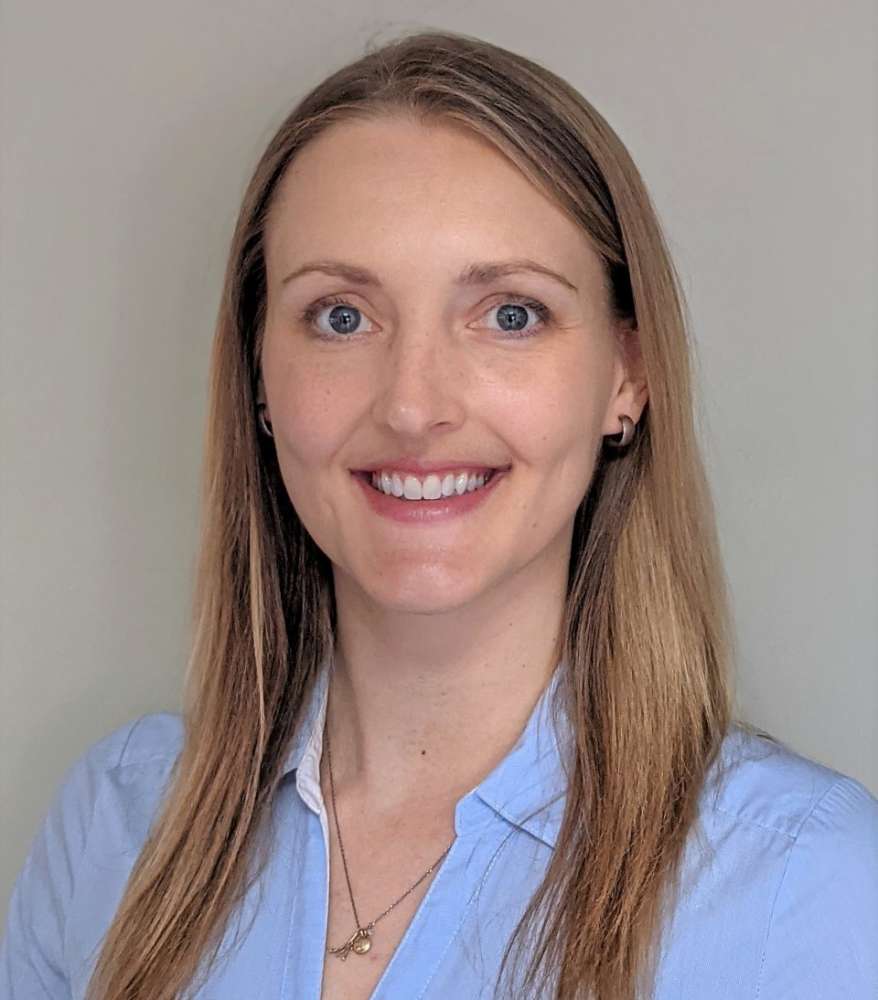
Understanding how plants and soils interact in agroecosystems is key to sustainable farming that helps provide food while protecting biodiversity and addressing climate change, said Dr. Kira Borden, an agroecologist who will receive a Banting Postdoctoral Fellowship.
Currently completing a post-doc at the University of British Columbia, she will work with Dr. Claudia Wagner-Riddle, a professor in the School of Environmental Sciences.
For her PhD at the University of Toronto, Borden studied agroforestry systems in in Africa that integrate trees onto farms to improve nutrient cycling, carbon storage, biodiversity and climate resiliency.
“At Guelph, I will look at how more biodiverse agricultural fields help promote climate-smart landscapes and reduce greenhouse gas emissions,” she said.
Borden said the Banting award will enable her to use state-of-the-art greenhouse gas measurement technology in Wagner-Riddle’s lab and widen her existing research connections with several U of G faculty members. “It feels great to be recognized for my contributions to this field of research so far. I want to contribute to the effort to grow food more sustainably in the future.”
